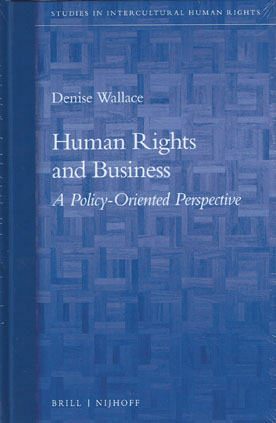
This book addresses the ever more urgent question as to whether individuals, indigenous peoples or other vulnerable groups should be entitled to remedies under international law for violations of their human rights by transnational corporations.
Using the tools of policy-oriented jurisprudence, the author analyzes, in great historical and cross-cultural detail, the various claims involved, including the status of corporations and their purpose and growth beyond borders in the era of globalization; countervailing demands for respect and rights of individuals and groups; the changing role of the nation-state in international law; movements for corporate social responsibility and corporate accountability; trends in decision both domestically and internationally; as well as voluntary codes. Her appraisal of past decisions and suggestions leads her to conclude that only binding international legal remedies against transnational corporations can fully address the legitimate claims of individuals or groups.